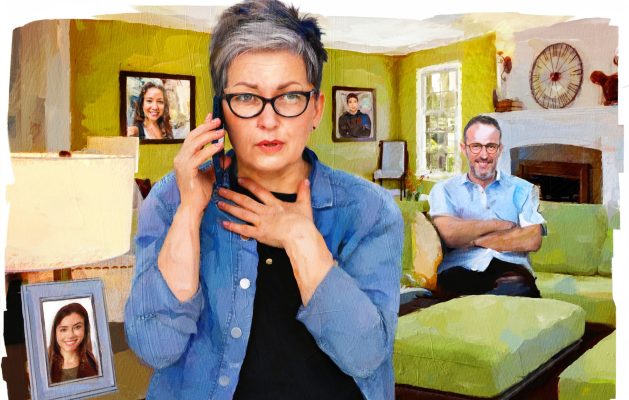Echoes From The Past – Episode 03
Her hat discarded in her digs, Helen walked through breezy, sunlit streets to where Beth had told her she would find the harbour at the river mouth. The smell of fish alone would have led her there.
However, when she reached it, she found the place empty apart for a couple of boats. The only sign of fishing was in the fish merchants’ huts along the quay, where women were gutting fish and packing them into barrels, while whole armies of gulls either perched hopefully on rooftops or squabbling on the cobblestones below.
Squinting against the sun’s dazzle, Helen looked around. On the quay itself were two figures. One was an artist sitting on a rickety stool in front of an easel which looked as if it was about to take off in the wind. The second was an old fisherman perched on a rusting bollard, puffing at his pipe and clearly an official part of the scene being painted.
Research starts with local people. The artist was unlikely to be local, but the old fisherman definitely was. Helen walked slowly across the quay to stand behind the artist and glance at the picture emerging on the canvas.
“Pretty windy,” she said finally.
The artist looked up, smiling. Nice blue eyes in a sunburned face.
“This canvas is moving so much, it’s turning me into a bad impressionist,” he apologised. An English, not a Scottish voice, she judged, but pleasant rather than posh, inviting rather than blocking conversation.
“I left my hat at home for the same reason,” she replied. “Do you live here?”
“Only temporarily. I’m convalescing. Ex-Army, savouring still being alive.”
“I was a nurse out there,” she said.
He looked up, interested.
“Where about?”
“Mostly Belgium. I was with Elsie Inglis’s volunteers.”
He nodded.
“The all-women field units? I heard of them. They did a good job under fire, as well.”
“Not always,” she said. “The Germans were pretty decent they usually knew where we were from their reconnaissance flights, and recognised that we were handling some of their wounded as well as our own.”
“Are you here on holiday?”
“No. I’m a reporter, researching the history of smuggling in Eyemouth.”
An unreadable look flickered across his face, then he nodded.
“From what I’ve heard, that was rife about a couple of hundred years ago. You should ask old Fred down there, he’s full of stories about the old days. But a bit like the Ancient Mariner it’s easier to start him talking than to escape from him once he’s in full flow.”
The wind buffeted them both. He grabbed his easel.
“Will it mess up your painting if I go down and talk to him?” she asked.
He grinned, a nice smile, setting his eyes sparkling.
“Only if the wind gusts and you appear in this as a long smudge of green. If you’re willing to take your chances, on you go.”
“Thanks,” Helen said. “I won’t be long.”
“I wouldn’t be too sure of that,” he warned.
A handsome man, she thought, walking across to the old fisherman, who studied her like a seagull would watch a fishwife filleting a herring. She smiled.
“I have the artist’s permission to talk with you,” she said. “He told me that you know a lot about smuggling in the old days. I’m researching that.”
He took his pipe from his mouth.
“A college girl?” he asked.
“I was. Now I’m a reporter.”
Faded blue eyes weighed up her reply, then the fisherman nodded.
“So where do you want to start?” he asked.
The artist was right. Once he got into his stride, this storyteller never stopped to breathe, but what he told was gripping. Helen brought out her notepad from her skirts, and jotted down as much as she could manage.
Two hundred years before, smuggling had been a major industry along this coast, as Government taxes and import bans turned a whole range of foreign goods into a major source of profit for any smuggler prepared to take the risk.
Brandy and wine, of course, and tobacco, too, all available from France or Holland at a fraction of what they would cost in Britain; silks, spices, even salt or tea were landed in the dead of night and hidden from prowling revenue men. Then, when the coast was clear, they would be shipped out on the backs of ponies with padded hooves, up through secret trails into the Cheviot hills behind, there to go through hidden valleys to anywhere in Scotland and the north of England.
Her fisherman refilled his pipe.
“All along this coast there are caves and hidden passageways. Tunnels that take you from the shoreline up under the town. There are houses here like Gunsgreen Mansion that have huge secret cellars, and are almost as big underground as above it.”
“Gunsgreen Mansion?” Helen asked, scribbling feverishly.
“Built in the mid seventeen hundreds by a local merchant, John Nisbet. Aye, he had a perfectly legal business, but his real wealth came from smuggling. Inside his house there are still fireplaces and bookcases that swing aside to show passageways to other smugglers’ houses. Or a tea-chute, to get rid of stuff quickly.”
The fisherman paused, his pipe in his hand.
“Funny,” he said.
“What is?” Helen asked, still writing.
“Your questions. That artist lad up there the sodjer man he’s asked me the same questions as yourself. We blether on about smuggling every time he’s down here painting.” The fisherman paused. “Where’s he gone?”
“Who?”
“The painter lad.” The fisherman pointed with his pipe’s stem.
Helen looked up to find the quay deserted.
“Probably the wind,” she said. “Too difficult to paint.”
The old fisherman sniffed.
“He’s been out in worse weather than this.”













